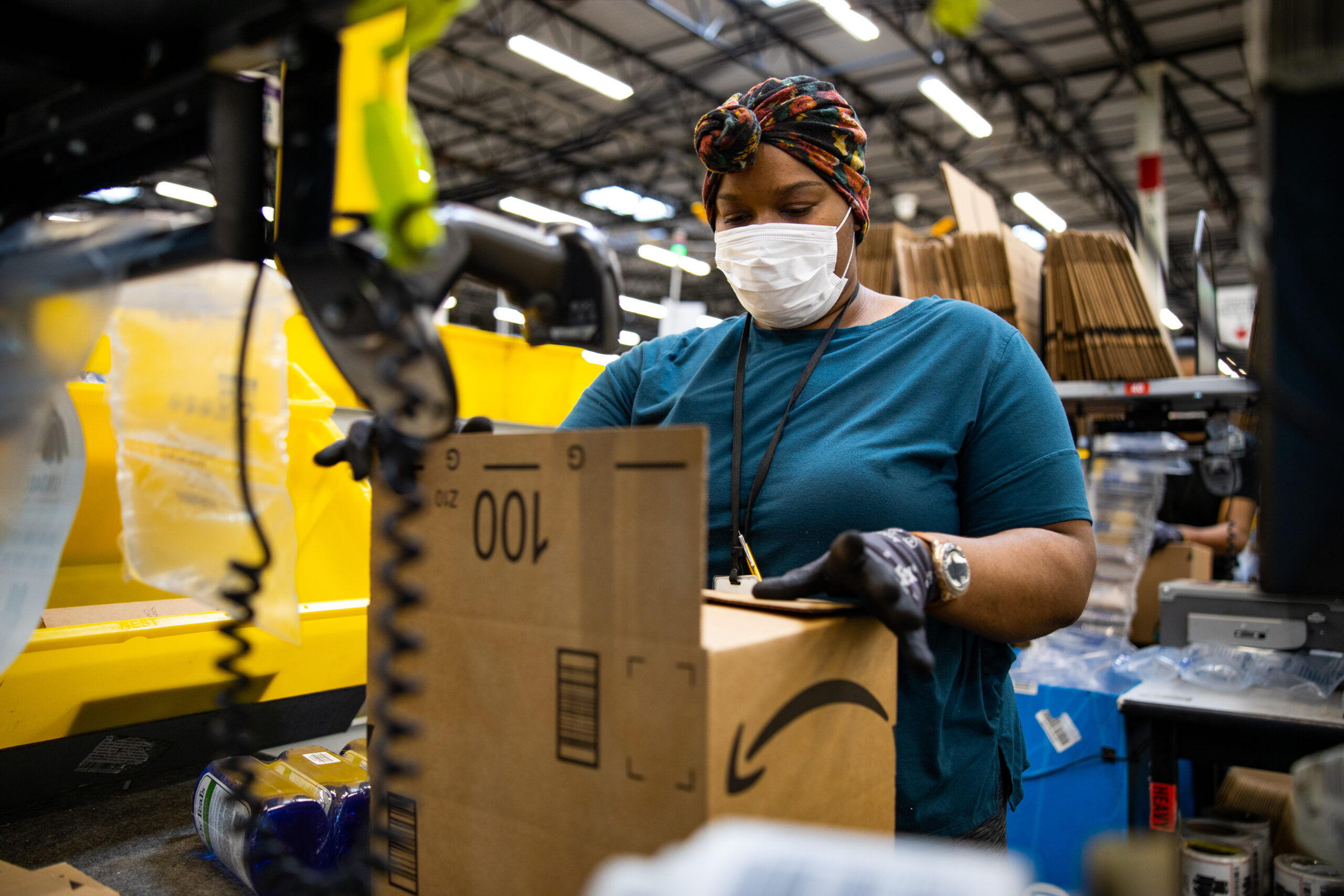Amazon (AMZN 1.26%) has been one of the best-performing stocks of all time.
The “Magnificent Seven” member is now one of the most valuable companies in the world, and since its IPO, the stock is up by more than 200,000%, meaning that it would have turned an early investment of $1,000 into a position worth more than $2 million today.
In other words, buying Amazon stock at almost any point in its history would have been a smart move as the company has built an empire on e-commerce and cloud computing, two industries that it pioneered and still dominates.
But will Amazon continue to be a winning stock to hold in 2025?
Image source: Getty Images.
Where Amazon stands today
Amazon is still the leader in its core businesses of e-commerce and cloud computing, but the company is maturing. Its growth rate has slowed from the blistering pace it was at a few years ago, but it’s still strong for a company of its size.
In the third quarter, revenue rose 11% to $158.9 billion, paced by Amazon Web Services (AWS), its cloud computing business, which posted revenue growth of 19% to $27.5 billion.
The company’s margins, however, continue to expand as its growth in high-margin businesses like AWS, marketplace, and advertising outpaces the growth in the rest of the business.
In the third quarter, operating income from AWS jumped from $7 billion in the prior-year period to $10.5 billion as margins expanded in the segment. Revenue from third-party seller services, which offer higher margins than direct sales, rose 10% to $37.9 billion, while advertising revenue jumped 19% to $14.3 billion.
As long as revenue growth from those categories continues to outpace the overall business, Amazon’s profit margin should keep expanding. In the third quarter, its operating margin reached 11%, its highest ever. Concerns about profitability have dogged the company for much of its history, but years of investing in long-term growth have clearly paid off.
What to expect in 2025
Looking ahead to 2025, the biggest question mark facing Amazon seems to involve what it’s doing in AI. Compared to its “Magnificent Seven” peers, the company’s AI strategy has looked somewhat muddled.
It seems to have missed the boat in developing an AI chatbot. Microsoft partnered with OpenAI early on, Alphabet has launched Gemini, and Meta Platforms has Meta AI. But Amazon’s in-house chatbots have been poorly received. So it has instead partnered with Anthropic, the maker of AI chatbot Claude. Amazon invested $1.25 billion into Anthropic last September, added $2.75 billion more in March, and followed that up with a $4 billion investment in November, bringing its total outlay to $8 billion.
Amazon said that those decisions were driven by the rapid adoption of Claude in AWS. In cloud infrastructure, Amazon is also focused on its managed service, Amazon Bedrock, which gives users the tools and computing power to build and scale generative AI applications. Amazon’s leadership in cloud computing should help it benefit from the demand for AI applications.
In 2025, expect Amazon to continue to invest in AI and develop its strategy. While it doesn’t need to win in AI in order for its e-commerce and cloud computing businesses to keep growing, Amazon doesn’t want to be left behind when it comes to the next major technology shift, and it will likely continue to play catch-up in 2025.
Is Amazon a buy for 2025?
Amazon is still growing at a solid pace, delivering impressive margins and strong results. It currently trades at a price-to-earnings ratio of 50, which seems like a fair valuation for the company, as it still has solid profit growth potential.
It is likely to continue to pour billions of dollars into its AI-related efforts, but its dominance in e-commerce and cloud computing looks secure. Amazon looks like a good bet to continue to make gains in 2025, but based on its market cap of around $2.5 billion and its earnings multiple, its upside potential is more limited.
Still, this is a stock that deserves a place in any long-term investor’s portfolio.
John Mackey, former CEO of Whole Foods Market, an Amazon subsidiary, is a member of The Motley Fool’s board of directors. Suzanne Frey, an executive at Alphabet, is a member of The Motley Fool’s board of directors. Randi Zuckerberg, a former director of market development and spokeswoman for Facebook and sister to Meta Platforms CEO Mark Zuckerberg, is a member of The Motley Fool’s board of directors. Jeremy Bowman has positions in Amazon and Meta Platforms. The Motley Fool has positions in and recommends Alphabet, Amazon, Meta Platforms, and Microsoft. The Motley Fool recommends the following options: long January 2026 $395 calls on Microsoft and short January 2026 $405 calls on Microsoft. The Motley Fool has a disclosure policy.

